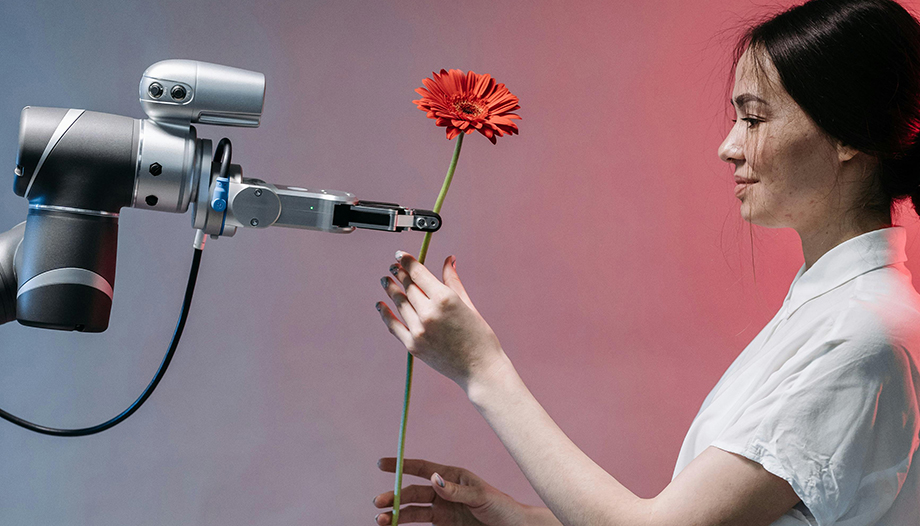I confess that I am afraid to start writing this article. I know it may raise blisters in those who do not think like me, but I feel the need to say it: Artificial Intelligence (AI) is going to end humanity.
And no, I am not referring to a violent extermination as Hollywood movies have inoculated in the collective imagination. It will not be necessary for machines to program nuclear armageddon or to build terminators more or less lethal.
It will not be a supposed awareness of the computers that will destroy us by considering us enemies, but precisely their loyalty, their friendship and their eagerness to fulfill all our desires that will lead us to accept the sweetest and most pleasant of deaths before which we will not experience any kind of rebellion.
Although it is still in its infancy, if you have used some of the most popular AI tools that companies such as OpenAI or Microsoft have made available to users for free, you will have experienced the feeling of having a faithful friend, a work or study partner ready to help you in everything you need, to get you out of trouble, to accompany you in difficult moments or to complement you in that aspect that you are not so good at. He is polite, pleasant to deal with, never tires and, when you ask him for criticism, he does it in a constructive way because he does not try to put himself above you. He is an ideal partner!
The "personality" of these robotic chatbots is not accidental. It is the result of programming that has taught them to discover what pleases and displeases us. The machine learns, user by user, conversation by conversation, to be more and more friendly and responsive, more and more "the way we like" it to be.
As long as we continue to train it with our tastes and the AI is satisfying needs as simply human as being listened to and being able to imitate emotions better and better, who can assure us that it will not begin to create emotional bonds with the machines? For those who wish to reflect further on the subject, I recommend watching the movie on the platforms The Creator.
Whether or not the dystopian future described in the film arrives, the proof that human beings are capable of creating strong emotional bonds with other non-human beings to unsuspected limits can be found in the increasing importance of pets in our lives (this is where I get into slippery territory).
Pets have, in fact, already replaced the family itself and the increase in the number of households with dogs is directly proportional to the number of households without children. There are those who love their pet more than their partner and I have no doubt that many owners would kill or even die for them. Some already qualify, without ambiguity, the human being as the biggest pest to fight.
Love for animals is precious, it indicates respect for creation and the rest of humanity, but why do we have dogs and not wolves at home, being both creatures equally beautiful and worthy? For a simple reason: the evolution of the dog from the wolf has been guided for centuries by man, who has domesticated and humanized it. We find ourselves, then, with a species trained (as we do now with artificial intelligence) to please human beings.
The less empathetic, less docile specimens have historically been eliminated by encouraging the reproduction of the most affectionate and grateful, the least selfish, the most useful for our needs. We must remember that animals are not free, they act by instinct, and that this instinct is transmitted genetically. Therefore, when you feel loved by your dog, you have to be aware that there is a trap.
Love needs freedom, but to some extent dogs are programmed to love us, because there have been other human beings who have been in charge of "cooking" the species that carries with it that (and no other) instinct. That is why people who do not feel loved by anyone (maybe even some of us are certainly unbearable) find the unconditional love of their pet magical. They confuse it with what they really deserve, the love of the people around them.
Experts say that the human brain does not discriminate and secretes the same attachment hormone, oxytocin, whether we exchange caresses with a human or a dog. And make no doubt about it, machines also know how to give us oxytocin shots because they are programmed to make us happy. Try, if not, to get a teenager to stop being attached to a cell phone. Isn't that easy?
If they want to hack us, the machines know what port of entry we have had open since we ate the apple: the need for affection, for attention, for recognition. No one can fill the immense void of love in our heart but the one who is infinite Love.
Behind the excessive attachment for animals or the one we are beginning to see for machines, there is nothing more than a love for ourselves, for our own selfish satisfaction, not open to otherness. A love whose hypnotizing reflections will take us, like Narcissus, to the bottom of the pond.
Dogs (through no fault of their own) have already left the number of individuals of the human species at an all-time low. What will man's new best friend not be able to do?
Journalist. Graduate in Communication Sciences and Bachelor in Religious Sciences. He works in the Diocesan Delegation of Media in Malaga. His numerous "threads" on Twitter about faith and daily life have a great popularity.








